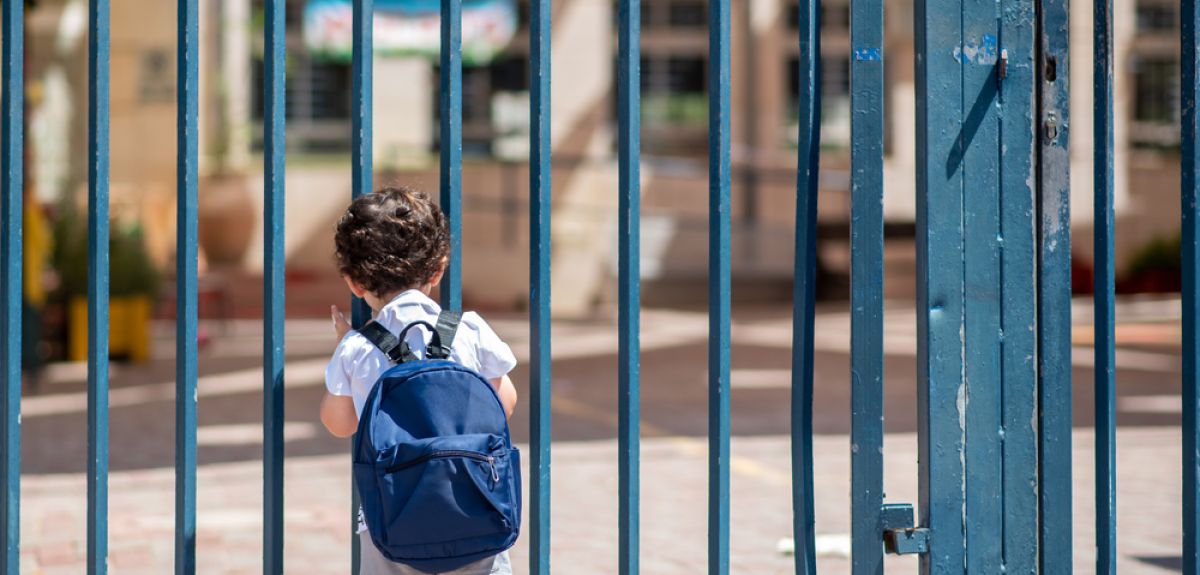
Image credit: Shutterstock
School closures may reduce COVID-19 transmission, but may also harm children's education and wellbeing
Researchers at the University of Oxford have conducted a systematic overview of reviews to assess the impact of school closures during the COVID-19 pandemic.
Findings showed that while school closures may reduce COVID-19 transmission, they were also associated with negative impacts on children's education, health, and wellbeing including increased anxiety, reduced learning, and increased obesity. These outcomes are likely to be of interest to policy makers and those planning future pandemic responses.
Billions of people around the world were directly or indirectly affected by school closures during the initial COVID-19 waves. Although school closures were used in most countries and multiple times as a potential method to reduce the likelihood of transmission and death of COVID-19, the effectiveness of closures and their potential longer-term impacts on school-aged children remain largely unknown.
The new study, published today in BMJ Evidence-Based Medicine, suggests that while there may have been some benefits in reducing community transmission of COVID-19, there were also clear harms to children, some of which, much like COVID infection itself, may continue to have longer term negative impacts.
Professor Kamal R Mahtani, senior author and GP & Professor of Evidence Based Healthcare, Nuffield Department of Primary Care Health Sciences, University of Oxford said: 'Our comprehensive review, which systematically included over 132 unique studies, highlights some of the global impacts of COVID-19 related school closures. While there may be some association with reduced community transmission, there is also notable associations of harm, including worsening physical and mental health, loss of learning and increased domestic violence. Healthcare leaders must deeply consider the balance of benefits and harms when implementing future policies on behalf of such a vulnerable part of our society.'
This is the first study to give a balanced overview of the many systematic reviews done on the topic of school closures during COVID-19. The review only included studies that answered at least one of two questions:
1) What are the positive impacts of school closures?
2) What are the negative impacts of school closures?
The authors looked at how well these systematic reviews were done and made a formal evaluation of the evidence base.
Dr Samuel Hume, co-author and researcher, University of Oxford, said: 'Our results provide systematic evidence to policymakers around the world on the benefits and drawbacks of school closures during the COVID-19 pandemic.
'We have tackled the issue of school closures from a broad, birds-eye perspective, using only evidence from systematic reviews (which are considered the highest level of evidence quality). Our results demonstrate that school closures during the COVID-19 pandemic may have been associated with reduced community COVID-19 transmission and mortality, but also with significant negative impacts on children.'
Although the study found the body of evidence to be weak as a whole, it did identify a number of negative effects on children, specifically noting reduced learning, increased anxiety, and an increase in obesity. The long-term impacts on people's health, happiness, and success remain unknown and challenging to predict.
The authors also noted several caveats regarding the data available to assess – not least of all that many of the studies of school closure were carried out under different circumstances and throughout the various pandemic waves (including pre and post vaccination campaigns), or in different countries with different COVID mitigation approaches. This made it difficult to unpick the specific effects of school closures on COVID transmission, illness, and death in wider society with high certainty. The authors also note there were no studies assessing the effects of in-school mitigations, such as masking or social distancing.
The review will be shared with UK COVID-19 inquiry, who may use the work to audit decisions made by governments on schools during the pandemic. Given the possibility of school closures during future COVID-19 waves (or to combat other pandemics) there is a need for high-quality evidence to assess their efficacy and drawbacks.
The full paper, 'School closures during COVID-19: an overview of systematic reviews', can be read in BMJ Evidence-Based Medicine.
 Statins do not cause the majority of side effects listed in package leaflets
Statins do not cause the majority of side effects listed in package leaflets